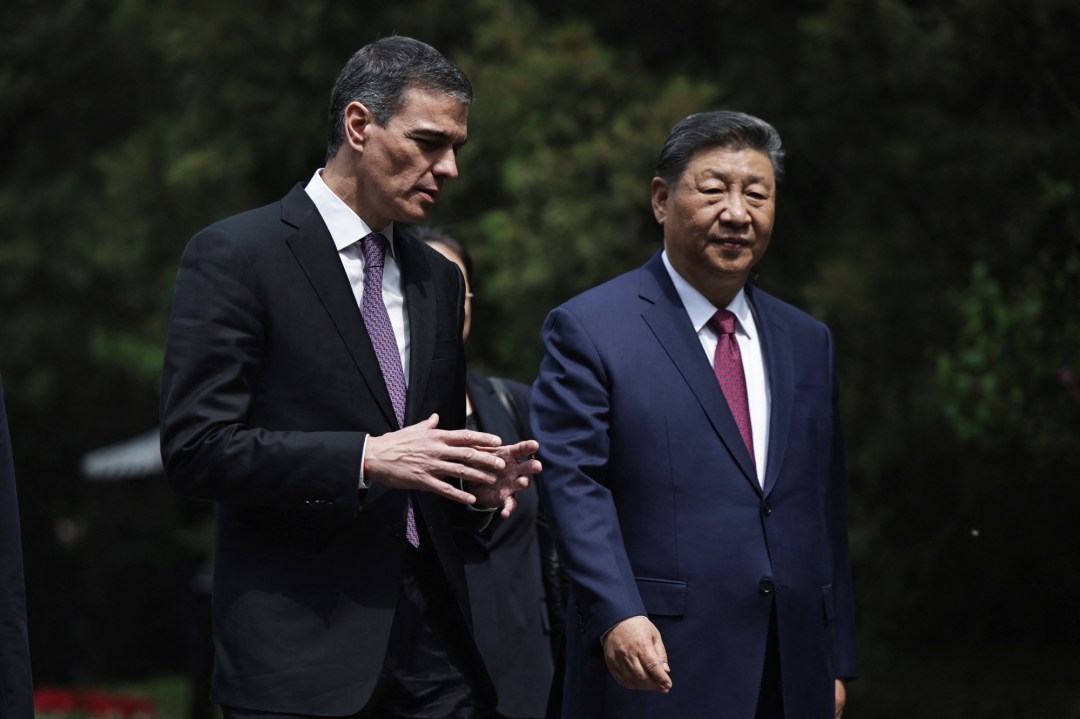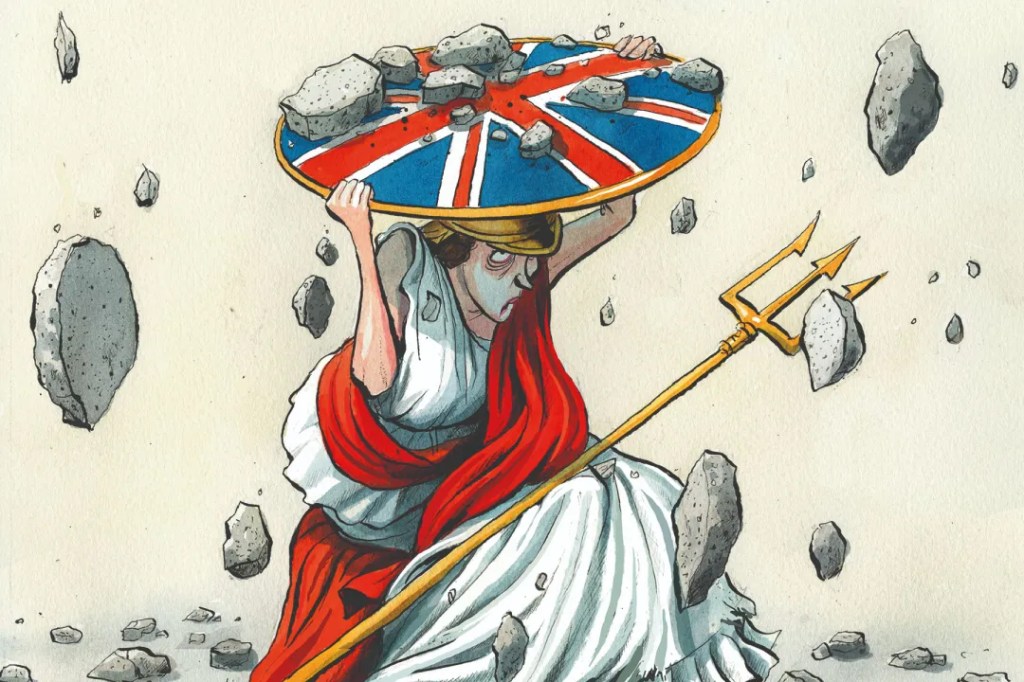‘You’ll be cutting your own throat,’ US Treasury Secretary Scott Bessent warned countries thinking of aligning with China. The remarks were made just before Spain’s prime minister, socialist Pedro Sánchez, arrived in Beijing on Thursday with a delegation of ministers, seeking to boost trade, attract investment, and to position Spain as the EU’s chief interlocutor with China. Bessent’s threat came as no surprise. President Trump had just lifted global tariffs above 10 per cent for 90 days for everyone except China, which instead now faces a staggering 145 per cent rate. Bessent’s message couldn’t have been clearer: any friend of our enemy is an enemy.
To an extent the hostility is mutual: anti-American sentiment runs deep in Spain. There are traditionalists who have never forgotten the humiliating defeat in the Spanish-American war in 1898 which resulted in the loss of Cuba, Puerto Rico and the Philippines, the last remnants of a once-great empire. That debacle is still referred to today as El Desastre (the Disaster).
Others continue to resent the United States for its support of Franco’s dictatorship in exchange for military bases during the Cold War. In 2003, just before becoming prime minister, Socialist leader José Luis Rodríguez Zapatero sparked controversy by remaining ostentatiously seated as the American flag passed during a National Day parade. Today, some of the smaller parties propping up Pedro Sánchez’s fragile left-wing coalition want Spain to withdraw from Nato and fiercely oppose any increase in defence spending. For them Donald Trump is a ‘dangerous fascist’.
Perhaps it’s little wonder then that Spanish officials seemed unconcerned that they were antagonising Washington. Sánchez has never made any secret of his intention to confront ‘the international far right’, casting Spain and Europe as key players in the pushback against Trump-style politics. In February, claiming that Nazi salutes were seen at the Conservative Political Action Conference (CPAC) in Washington, Sánchez declared that Europe is the greatest haven of democracy in the world.
Last November, one of his deputy prime ministers, Yolanda Díaz, was equally blunt, describing Trump’s election victory as ‘bad news for everyone who understands politics as the means to improve lives rather than poison them with hate and misinformation’. Since then Sánchez has taunted Trump with claims that the European Union will ‘Make social media great again’ and pledged that rather than ‘Drill, baby, drill’ it’s going to be ‘Green, baby, green’. Indeed, Sánchez and Trump are in opposite corners on a whole range of issues ranging from Israel and Gaza to diversity, equity and inclusion regulations.
El País, Spain’s centre-left newspaper of record, recently suggested that Trump’s rhetoric has grown so extreme that Sánchez is now in regular contact with other world leaders and hinted that ‘an alternative grand coalition of unity to preserve the known world order is beginning to take shape.’
Foreign minister José Manuel Albares announced that ‘There is still a huge majority of us who support multilateralism and a rules-based world.’ Another minister put it more bluntly: ‘Everyone’s reorganising in order to depend less on the US… people are looking for alternatives. This is going to reduce the centrality of the US in global trade. It is an unstoppable path… the whole European Union knows it…’ before adding, ‘The US is going to lose a lot of international influence.’
It seems that Sánchez would welcome that shift. He is the first world leader to visit China since the tariff war broke out and this is his third visit in just over two years. His approach seems to align with Friday’s El País editorial: ‘Trump’s hostility towards the EU forces the EU27 to reformulate its trade relations with, for example, the Mercosur countries, Mexico, Malaysia and Vietnam. And with China…. After years of following Joe Biden’s policy on China, given the attitude of his successor, Europe must now develop its own.’
After his meeting with President Xi Jinping, Sánchez called for the US and China to stop the tit-for-tat tariff hikes: ‘Trade wars are bad for everyone… what the world needs is for the US and China to talk.’ But it seems his words fell on deaf ears: the Chinese president promptly escalated the conflict by increasing China’s retaliatory tariffs on US goods from 84 to 125 per cent.
Meanwhile, it remains to be seen what will come of Bessent’s threat.








Comments